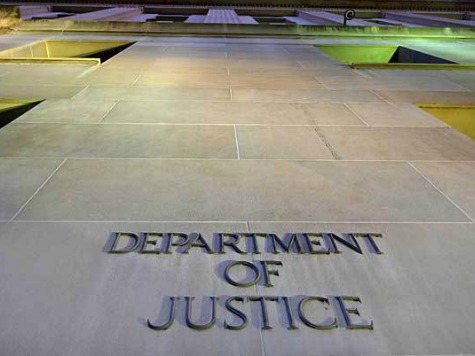
You can be a business owner who is on the right side of the law, but that may not matter in 21st Century America if you’re a business owner who on the wrong side of someone else’s political agenda. That should not be the case, which is why we filed a Freedom of Information Act (FOIA) lawsuit on September 4, 2014, against the Department of Justice (DOJ). This was done to obtain records relating to a highly controversial program known as Operation Chokepoint (OCP), which the DOJ started early last year.
Our lawsuit was filed in the U.S. District Court for the District of Columbia in accordance with a FOIA request we filed with the DOJ on May 1, 2014. The DOJ has been operating in collusion with the Federal Deposit Insurance Commission (FDIC) and the Consumer Financial Protection Bureau (CFPB) to pressure banks and other financial services to cut off law abiding businesses that the Obama Administration views as being politically incorrect.
When Operation Choke Point began, the FDIC targeted 30 merchant categories on its website as “high risk.” This list included the following: coin dealers, credit repair services, dating and escort services, firearms and firework sales, mailing lists, lottery sales, pay day loans, pharmaceutical sales, travel clubs and tobacco sales. So the Obama administration was up-front about which businesses it hates. In a 2011 bulletin, the FDIC left no room for equivocation or doubt when it warned banks that associating with these businesses could expose the banks to “reputational risk.” And if a bank is bold enough to resist a government directive to close down an account; it can be penalized even if the business in question has not broken any laws.
Operation Choke Point grew out of an executive order President Obama issued in 2009, which created the Financial Fraud Enforcement Task Force. The Task Force has been criticized for politicizing its enforcement against banks and other financial institutions, which have been forced to settle for billions even when there is no proof of wrongdoing. In August 2013, thirty-one members of Congress sent a letter to then-Attorney General Eric Holder and FDIC Chairman Martin Gruenberg requesting they provide congressional staff members with information on the OCP. This request did not produce any meaningful information. Although a DOJ official met with congressional staff, this same official declined to answer any questions, according to a report on Breitbart.com.
Our FOIA lawsuit asked for the following information:
- Any and all records regarding, concerning or related to the legal basis for the targeting of legal business entities under Operation Choke Point.
- Any and all records depicting the criteria for businesses and/or industries to be targeted for any type of scrutiny and/or enforcement or regulatory action under Operation Choke Point.
- Any and all records depicting the business types and/or industries targeted for any type of enforcement or regulatory action under Operation Choke Point.
Since the program’s inception, the DOJ has claimed the OCP was set to combat instances of massive consumer fraud. But there is plenty of evidence to the contrary. The House Committee on Oversight and Government Reform issued a May, 20, 2014, report that contains information showing the primary target of the OCP is the short-term lending industry.
Honest, law abiding long-time customers have had their accounts closed because their banks could not resist government pressure.
Those Americans who are exercising their Second Amendment rights appear to be on the receiving of the end of the worst OCP has to offer. The Washington Times has reported that a number of firearm businesses have experienced sudden disruptions in their relationships with banks. One example given:
“TD Bank does not support the Second Amendment and has contacted us here at the Powderhorn to say that due to our involvement in firearms sales, we as a business are no longer welcome to have an account at their bank,” the sporting goods store posted on northeastshooters.com, an online forum for shooting enthusiasts in New England states. “They classify us in the same gray area as the local weed shops sprouting up on the Cape.”
The good news is that there has been some push-back against OCP. The Independent Community Bankers’ Association recently released a position paper that concludes Choke Point “has deployed broad and overly aggressive enforcement tactics that sweep in many legitimate businesses, banks and third-party processors. The DOJ should focus its resources on businesses that are actually violating the law.”
A new organization has also emerged called the United States Consumer Coalition, which has a website devoted to the victims of Operation Choke Point.
The outside pressure and exposure has had impact. In July, the FDIC announced that gun retailers are no longer included in the “high risk” list. Still, this simply may be posturing. That’s why we saw fit to file a lawsuit to force compliance with our FOIA request and to continue our fight to restore constitutional rights.
Ironically, one of the “high risk” indicators of fraud is a lack of transparency and non-disclosure. The Department of Justice won’t obey the Freedom of Information Act and disclose basic information as required about Operation Choke Point. Indeed, Attorney Eric Holder has turned his Justice Department into an agency that is one of the worst violators of FOIA. Maybe the Obama administration should stop strong-arming banks, and focus on policing its own well-deserved “reputational risk” for fraud.

COMMENTS
Please let us know if you're having issues with commenting.